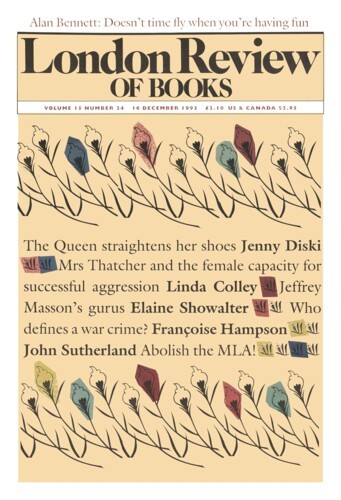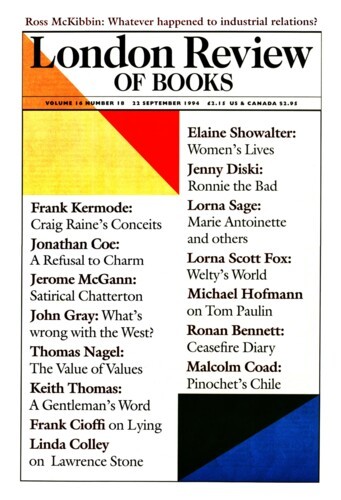The Guru of Suburbia
Elaine Showalter, 16 December 1993
In the Seventies, I had a colleague who joined the cult of the Bhagwan Rajneesh. Returning to New Jersey in orange garments after a summer in India, David announced that he wanted to change his title in the university catalogue from ‘professor’ to ‘swami’; teach ‘The Wisdom of the East’ instead of ‘Hemingway, Fitzgerald and Faulkner’; and replace the furniture in his office with a simple prayer mat. His spiritual elevation seemed almost predestined to David, since his adoring parents had raised him to feel like the Messiah; in contrast, he recalled, his sister had had to settle for being the sister of the Messiah.





